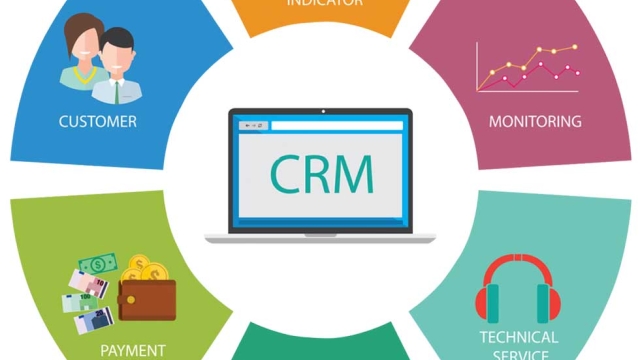In today’s fast-paced business landscape, customer relationship management (CRM) systems have become invaluable tools for companies of all sizes. CRM systems provide businesses with a centralized platform to effectively manage and nurture their customer relationships, resulting in increased customer satisfaction and ultimately, improved profitability.
At its core, a CRM system is an integrated software solution that helps businesses streamline their sales, marketing, and customer support processes. By centralizing data from various touchpoints, such as website interactions, emails, and social media interactions, CRM systems enable businesses to gain comprehensive insights into their customers’ behaviors and preferences. These insights empower businesses to personalize their interactions, tailor their marketing messages, and make informed decisions to effectively target and acquire new customers.
Beyond just storing and managing customer data, CRM systems offer a multitude of features and functionalities that can enhance productivity and efficiency. From automated lead management and sales forecasting to seamless collaboration among teams, CRM systems provide businesses with the tools they need to streamline their operations and optimize their sales processes. This ultimately leads to stronger relationships with customers, increased customer loyalty, and enhanced revenue growth.
In this comprehensive guide to harnessing the power of CRM systems, we will delve into the key benefits and essential functionalities of these systems. We will explore how businesses can successfully implement and integrate a CRM system into their existing workflows, and provide practical tips for maximizing its potential. Whether you’re a small startup or a large enterprise, understanding and effectively utilizing a CRM system can give your business the competitive edge it needs to thrive in today’s dynamic marketplace. So, let’s get started and unlock the full potential of CRM systems together!
Benefits of CRM Systems
CRM systems provide numerous advantages for businesses of all sizes. Whether you are a small startup or a well-established company, implementing a CRM system can transform the way you manage your customer relationships and streamline your operations.
Increased Efficiency: With a CRM system in place, businesses can automate various tasks and processes, resulting in enhanced efficiency. Manual data entry and repetitive administrative work can be minimized, allowing your team to focus on more critical aspects of their roles. By centralizing customer data and interaction history, CRM systems help streamline communication, enabling faster response times and more personalized interactions.
Improved Customer Satisfaction: A well-implemented CRM system empowers businesses to prioritize customer needs and cater to their preferences effectively. By having access to a comprehensive view of each customer’s journey and preferences, businesses can deliver more personalized experiences, tailored recommendations, and proactive support. This level of service not only increases customer satisfaction but also strengthens brand loyalty and advocacy.
Enhanced Sales and Marketing Performance: CRM systems enable businesses to track leads, identify sales opportunities, and generate targeted marketing campaigns. By analyzing customer data, businesses can gain valuable insights into customers’ preferences, buying patterns, and behaviors, helping create more effective marketing strategies. This, in turn, leads to higher conversion rates, improved sales performance, and a more efficient allocation of resources.
In conclusion, CRM systems offer a range of benefits that can revolutionize how businesses manage customer relationships. By increasing efficiency, improving customer satisfaction, and enhancing sales and marketing performance, CRM systems empower businesses to thrive in today’s competitive marketplace.

Key Features to Look for in a CRM System
-
Integration Capabilities: A top priority when selecting a CRM system is its ability to seamlessly integrate with your existing technologies and platforms. Look for a system that offers easy integration with popular tools like email clients, project management software, and customer support platforms. This allows for smooth data transfer, eliminating the need for manual data entry and ensuring accurate and up-to-date information.
-
Customization Options: Every business is unique, and so are its CRM needs. Look for a system that offers a high level of customization, allowing you to tailor the platform to align with specific business processes and workflows. This can include customizable fields, data structures, and workflows, ensuring that the CRM system adapts to your business, rather than the other way around.
-
Analytics and Reporting: A robust CRM system should provide comprehensive analytics and reporting capabilities. Look for features that allow you to track key performance indicators (KPIs), generate insightful reports, and visualize data in a way that is meaningful and easy to understand. This will enable you to make data-driven decisions and gain valuable insights into your customers, sales pipeline, and overall business performance.
Remember, these are just a few key features to consider when selecting a CRM system. Depending on your business needs, you may have additional requirements such as mobile accessibility, automation capabilities, or advanced security features. Take the time to evaluate your specific needs and choose a CRM system that aligns with your goals and objectives.
Oprogramowanie do prowadzenia serwisu GSM
Best Practices for Implementing a CRM System
When it comes to implementing a CRM system, there are a few best practices that can greatly increase your chances of success. Here are three key tips to keep in mind:
-
Plan for customization: One of the most important aspects of implementing a CRM system is ensuring that it is tailored to meet your specific business needs. Take the time to thoroughly analyze your processes and requirements before beginning the implementation. This will allow you to customize the CRM system accordingly, ensuring that it aligns perfectly with your unique business operations.
-
Provide thorough training: Introducing a new CRM system to your team can be a significant change, so it’s crucial to provide thorough training to ensure a smooth transition. Make sure that everyone involved understands how to properly use the system and take advantage of its features. This includes not only the end users but also the administrators who will be responsible for maintaining and optimizing the CRM system over time.
-
Foster a culture of data quality: A CRM system is only as good as the data it contains. Encourage your team to prioritize data accuracy and completeness from the very beginning. This includes implementing data validation measures, establishing clear data entry guidelines, and conducting regular data quality checks. By fostering a culture of data quality, you’ll ensure that your CRM system remains a valuable tool for making informed business decisions.
By following these best practices, you can maximize the benefits of implementing a CRM system and empower your team to effectively harness its power for driving business growth.









